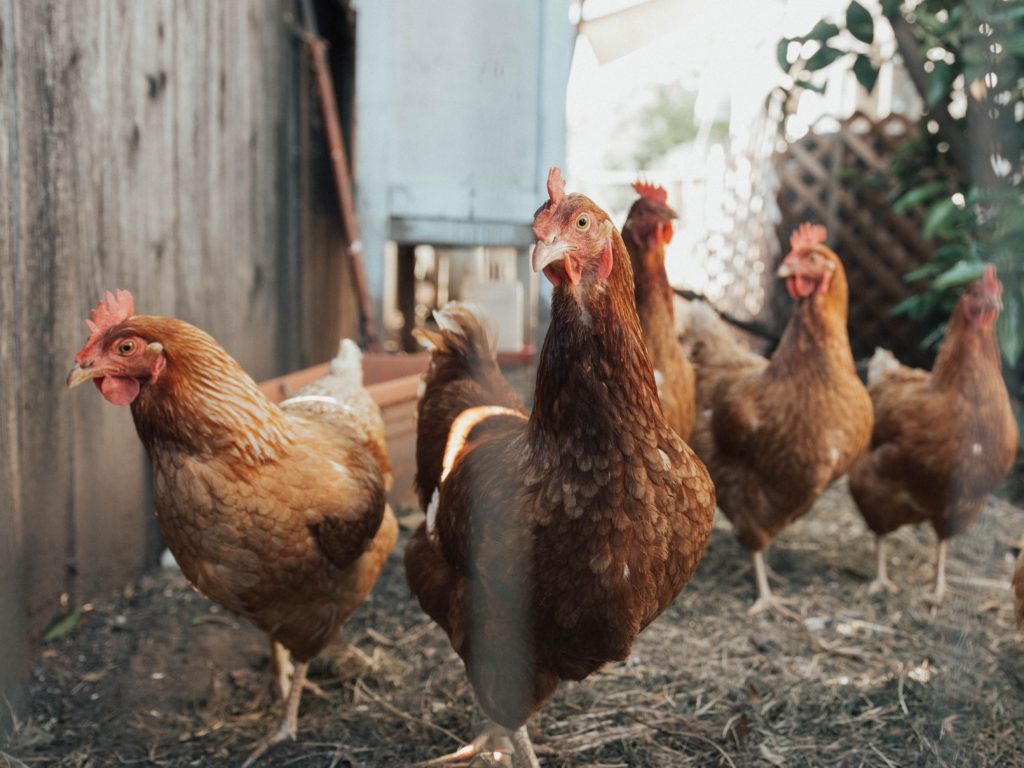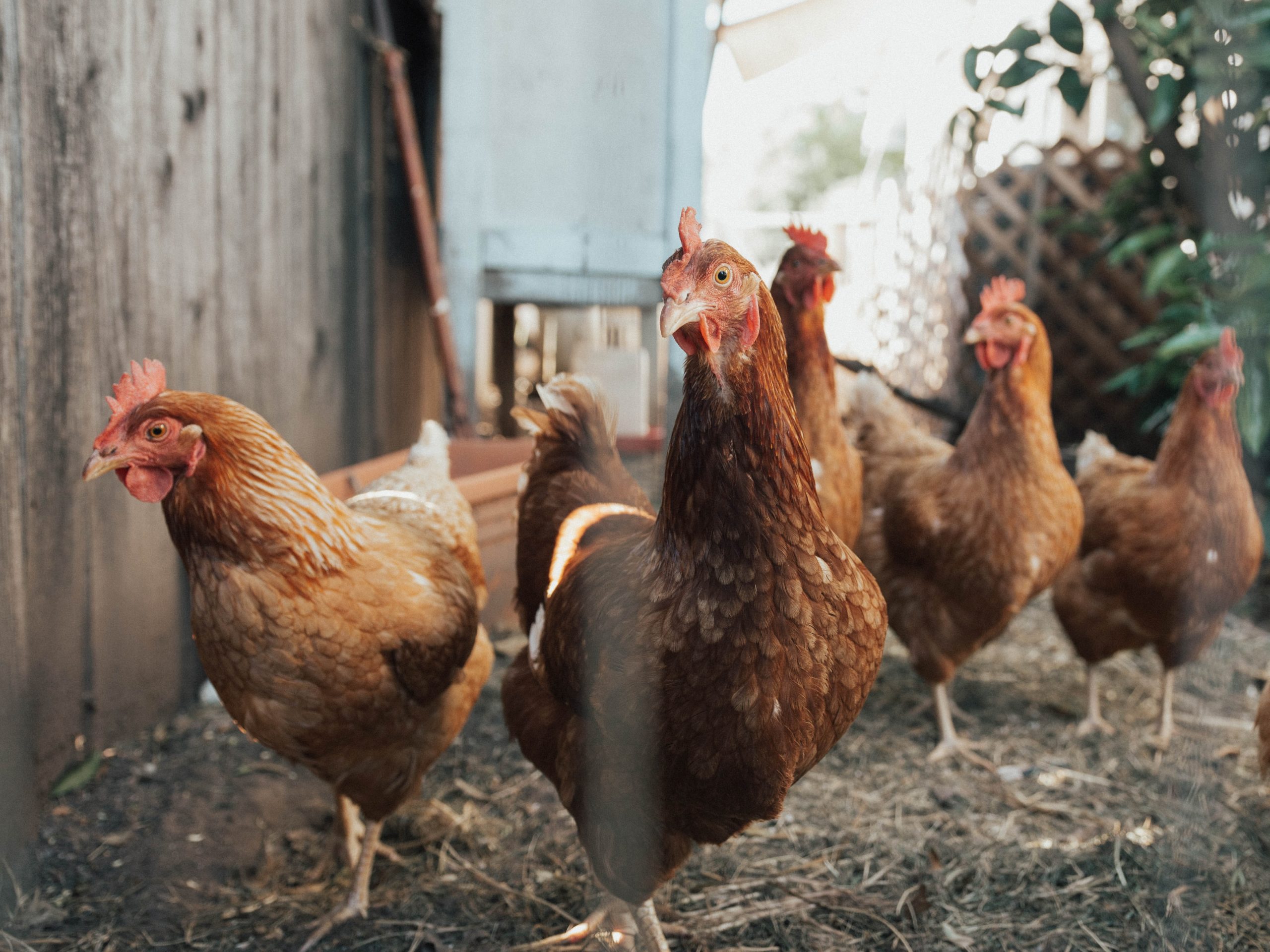Chickens are hands down one of the most talked and asked about animal that we raise.
There’s something about these velociraptor-like critters that drums up all sorts of attention, confusion, and fascination. So I wanted to debunk and demystify the joy (and hardship) of having a backyard flock.
First.
Chickens are the gateway animal of farming. Once you see how easy and rewarding it is to raise your own entertainment and eggs you will want to expand. I find when people start with chickens it then quickly moves to things like building raised beds, raising turkeys for thanksgiving, getting ducks for eggs for baking. Or on to goats for milk and cheese, sheep for wool and milk, hogs for compost turning and bacon.
Or even things like bees, alpacas, lamas or dairy and beef cows.
Your imagination (and land) is the only limiting factor.
Second.
Everyone on my farm has a job. Chickens might win for the number of jobs they have and help with.
They are manure spreaders, sanitizers, rodent control, pesticiders, fertilizerers, herbiciders, endless Zen entertainment, and of course, food producers (and money makers), of both eggs and meat.
I have spent hours on the phone with people fascinated by the idea of raising them.
So I’m here to walk you through chicken 101

#1 Do you need a rooster to have eggs?
Nope. You need a rooster if you want FERTILIZED eggs that you can then hatch out if you have an incubator and want chicks.
Hens (female chickens), like humans, are born with as set number of eggs that they lay daily starting at 4-6 months of age and are in their highest egg yield in the first year of life and then decline after that.
I had hens live with me for up to seven years and are they laying? Probably not, but they are part of the fam so they can stay til they get culled by a predator or die of natural causes.
#2 Why does your rooster crow all day, I thought they only did that in the morning?
I blame all Disney movies for this question. Yes, roosters will crow in the am…and then allllll day long…
Why?
Its communication about their surroundings, they communicate with the hens this way. They communicate with eachother this way (if you have more than one).
And I think, it’s a warning to predators.
#3 If you let your chickens out to free range how do you get them in at night?
Chickens will naturally go into their coop at night to roost. Never have I ever had to train, chase, force, ask, coerce a chicken to go into the coop.
I let them out in the morning. They run around all day. And when the sun goes down they put themselves to bed. All I have to do is shut the door.
#4 What do you feed your chickens?
I give them free choice on organic grain from the Co-op here in Tennessee. They also have access to kefir and/or yogurt for calcium and probiotics.
They have access to apple cider vinegar for enzymes and digestive support.
They also are running around the farm eating whatever they can find from bugs, fly larvae, worms, grubs, creepy crawlies, even mice, and snakes.
They are omnivores by design.
So when you see “Vegetarian fed” on egg cartons politely walk away and don’t be sucked into the marketing scam.
#5 How often do they lay eggs?
As said in #1 the hens lay the best in their first year averaging one egg a day.
Egg production is based on LIGHT cycles so you will see them slow in the winter because light cycles are shorter. That’s why commercial hen houses have lights on them 24/7 so they pump as many eggs out as possible. This is very stressful on their bodies, is a taxing on them nutritionally and goes against natures laws.
In the winter months I will increase their protein, which will usually kick-start a higher egg yield.
I give them carcasses of animals like deer after a hunt, or soup bones or stew meat (raw) from the freezer.
Remember they are OMNIVORES.
#6 What about predators?
When you have pray animals you attract predators.
And yet, the goal here at the farm is to live in BALANCE with nature, so we make sure that our predators are well fed on things OTHER than the chickens, like rodents, to keep them occupied.
We also have herd and flock guard dogs to walk the perimeter of the farm to warm me if anything suspicious is happening.
I also have a donkey who does the same thing.
And the bottom line is you will have run-ins and loose some to owls, coons, hawks, coyotes, fox, dogs, mink, and weasels.
Good fencing. Good housing. And good awareness will help with all of this.
And its tragic when it happens, and yet don’t let the possibility of this happening stop you from the joy of having them.
Fresh eggs and fresh perspective on life is what they provide.
If you haven’t already, I HIGHLY encourage you to invite these loves into your life.

Leave a Reply